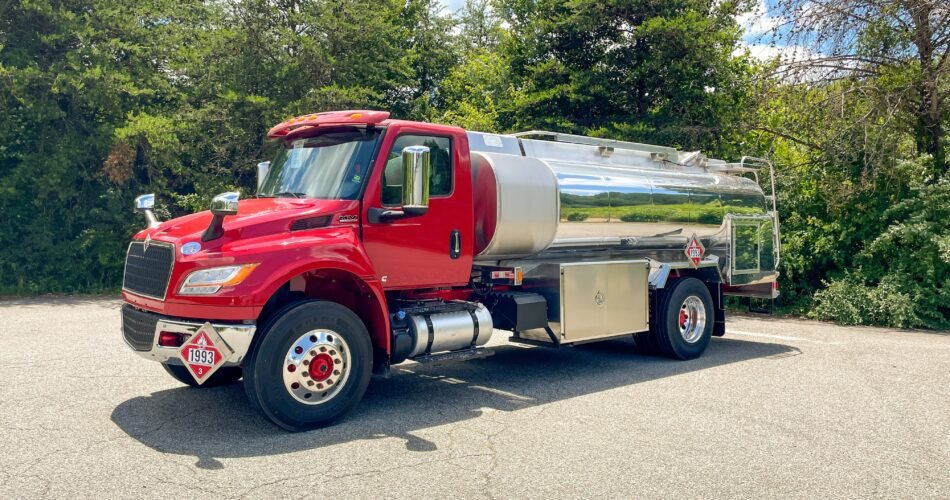In the world of diesel transportation, emissions standards are getting stricter every year. Whether you’re managing a fleet of trucks or operating a heavy-duty vehicle, staying compliant requires more than just engine upgrades. One crucial component that’s often overlooked is the Diesel Exhaust Fluid (DEF) system, particularly the growing importance of custom DEF tanks designed to meet unique operational needs.
What Is DEF and Why Does It Matter?
Diesel Exhaust Fluid (DEF) is a non-toxic, colorless mixture of 32.5% urea and 67.5% deionized water. It’s used in vehicles with Selective Catalytic Reduction (SCR) systems to reduce nitrogen oxide (NOx) emissions. These NOx gases are a major contributor to air pollution and smog. When DEF is injected into the exhaust stream, it reacts with NOx to form harmless nitrogen and water vapor.
DEF is not optional for modern diesel engines—it’s required. Without it, trucks will not pass emissions tests, and some vehicles may enter a restricted power mode or shut down altogether.
Why Fleet Owners Are Opting for Custom DEF Tanks
While standard tanks work well for basic use, large fleets, construction vehicles, and off-road equipment need DEF systems tailored to their specific workflows. That’s where custom DEF tanks come in.
These tanks can be built to meet space limitations, unique vehicle layouts, and harsh environmental conditions. Many custom models include:
- Reinforced plastic or stainless steel construction
- Built-in heaters for cold weather
- Electronic level indicators and diagnostics
- Mounting brackets and flexible hose connections
For example, a DEF tank used in mining equipment might need shock-resistant casing, while one for refrigerated trucks might require temperature regulation to prevent freezing.
The Role of a DEF Tank Truck in Distribution
Transporting DEF safely and efficiently is another piece of the puzzle. A DEF tank truck is specifically designed to carry large volumes of DEF to fleet stations, agricultural operations, or construction sites.
Unlike regular fuel tankers, these trucks feature:
- Stainless steel or polyethylene tanks to prevent contamination
- Sealed pumping systems to preserve purity
- Flow meters and dispensing guns for accurate refills
- Insulated containers to protect against temperature extremes
Fleet operators benefit by having on-site refills, reducing vehicle downtime and improving operational flow.
Benefits of Using DEF Trucks in a Fleet
In recent years, more companies are integrating dedicated DEF trucks into their operations. These are vehicles equipped with onboard DEF tanks, SCR systems, and optimized refilling setups. The main advantages include:
- Ensuring consistent NOx reduction across all vehicles
- Preventing fines and mechanical issues related to low DEF levels
- Improving the resale value of trucks with compliant systems
- Reducing manual handling of DEF fluid, which can cause contamination
These trucks are particularly beneficial in industries like logistics, public transportation, and agriculture, where emissions regulations are tightly enforced and operational efficiency is key.
Choosing the Right DEF for Truck Performance
All DEF is not created equal. When choosing DEF for truck use, it’s essential to buy from certified suppliers whose products meet ISO 22241 standards. Poor-quality DEF can contain contaminants that clog injectors and damage SCR systems.
Some best practices for DEF usage in trucks include:
- Storing DEF in cool, shaded environments (ideally 12°C to 25°C)
- Avoiding contact with dust or metals, which can degrade the fluid
- Using clean, closed systems for refills to maintain fluid purity
- Training drivers and maintenance staff on proper refill procedures
DEF typically has a shelf life of about two years when stored correctly, but high temperatures can shorten its usability.
Environmental and Economic Impact
Investing in a reliable DEF setup—whether it’s a custom DEF tank, a DEF tank truck, or well-maintained DEF trucks—has long-term benefits. It helps fleets meet EPA emissions standards, reduces environmental harm, and can even lower fuel consumption by enabling engines to operate more efficiently.
More importantly, staying compliant with regulations prevents costly penalties and breakdowns. A well-managed DEF system minimizes engine wear and extends vehicle life, reducing your total cost of ownership.
Final Thoughts
The transportation industry is evolving fast, and emissions compliance is no longer optional—it’s a legal and operational necessity. By upgrading to custom DEF tanks and investing in DEF trucks or a DEF tank truck for distribution, fleet managers can ensure that their operations run clean, smooth, and uninterrupted.
Don’t wait for regulatory pressure or mechanical issues to disrupt your operations. Start integrating smarter DEF solutions today—and drive toward a more sustainable, efficient future
